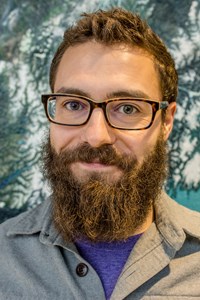Center for Safety Equity in Transportation
rural • isolated • tribal • indigenous
CSET Project #: 2008
Project Funding: University of Alaska Fairbanks
Start Date: August 2020
End Date: June 2025
Budget: $92625
Nathan Belz

Dr. Belz is an Assistant Professor in Civil Engineering, specifically Transportation Engineering, at UAF. He is also the faculty advisor for the UAF Green Bikes program, faculty member of the Master Planning Committee, and serves on the FNSB Public Transportation and FMATS Bicycle and Pedestrian Advisory Committees. Dr. Belz’s research and expertise primarily surrounds the transportation needs of rural communities including safety data analysis and non-traditional forms of transportation and has a background in driver behavior, human factors, and GIS applications in transportation.
In the state of Alaska, there are myriad opportunities for residents to participate in hunter-gatherer-type activities. These activities include fishing, hunting, and berry picking to name just a few. The “boom and bust” nature of most of these activities, coupled with the short seasons during which these resources are available, compresses the pressures on the physical infrastructure into short periods of time. In addition, the limited road network accessing the locations in which these activities are possible places significant traffic pressures on the transportation system. Further still, the culture surrounding personal subsistence activities encourages travelers to engage in risky behaviors such as driving while drowsy either on their way to or returning from said activities. The goal of this research is to specifically address the critical research area identified under Coordination and Context Sensitive Solutions: use a data-driven approach to better understand characteristics of high-risk intersections and roadway features and propose solutions.